Checks
Translations
OBS systemsmanagement:Agama:Staging
OBS systemsmanagement:Agama:Devel
Agama is a new Linux installer born in the core of the YaST team. It is designed to offer re-usability, integration with third party tools and the possibility of building advanced user interfaces over it.
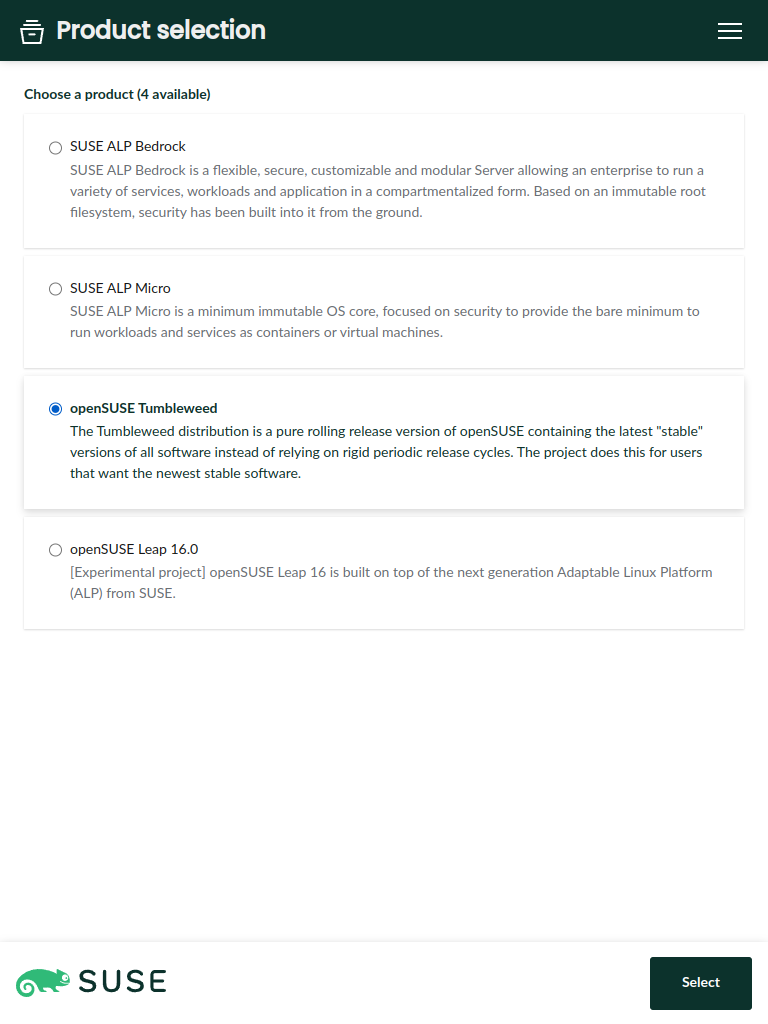 |
 |
Click to show/hide more screenshots
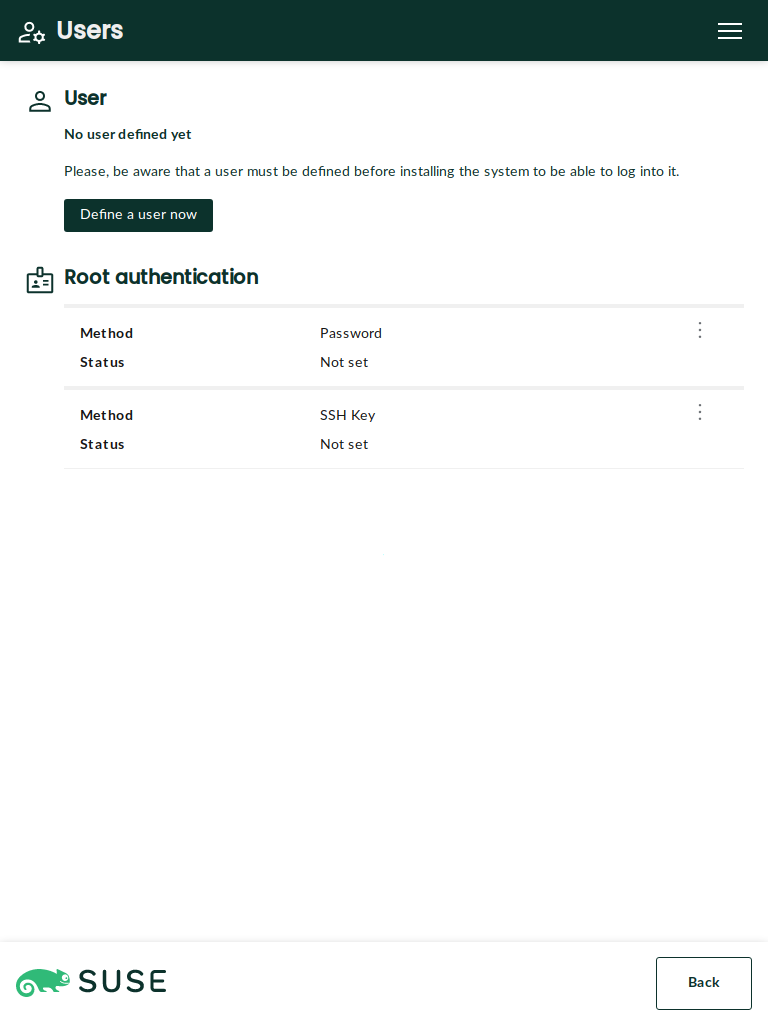 |
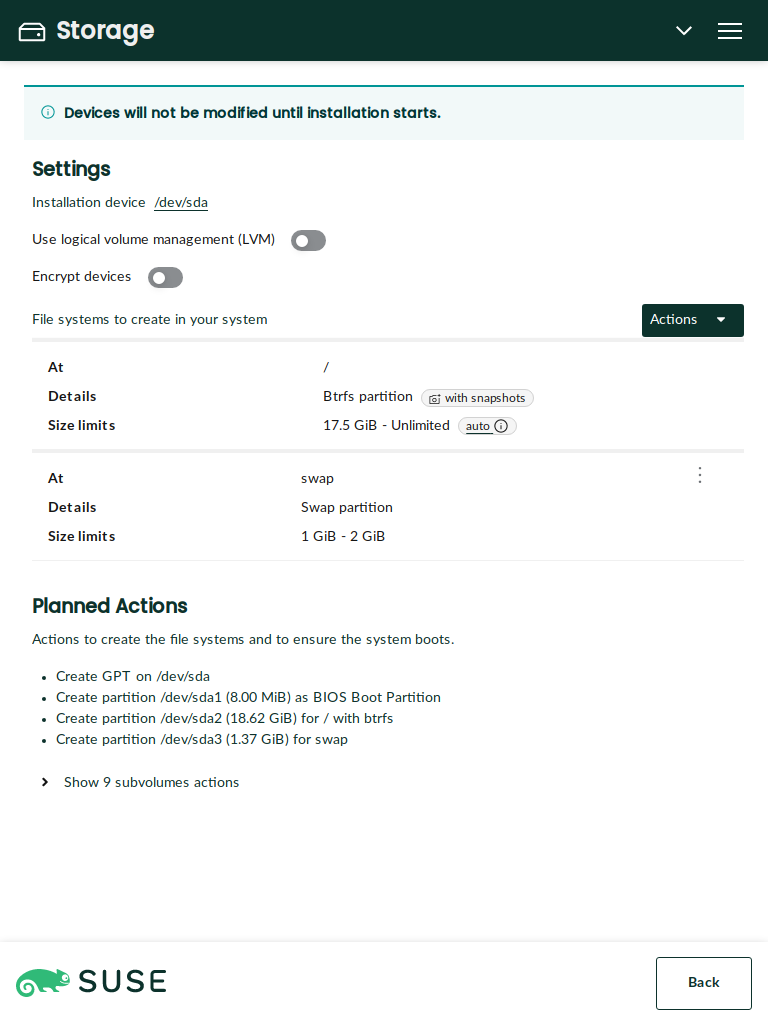 |
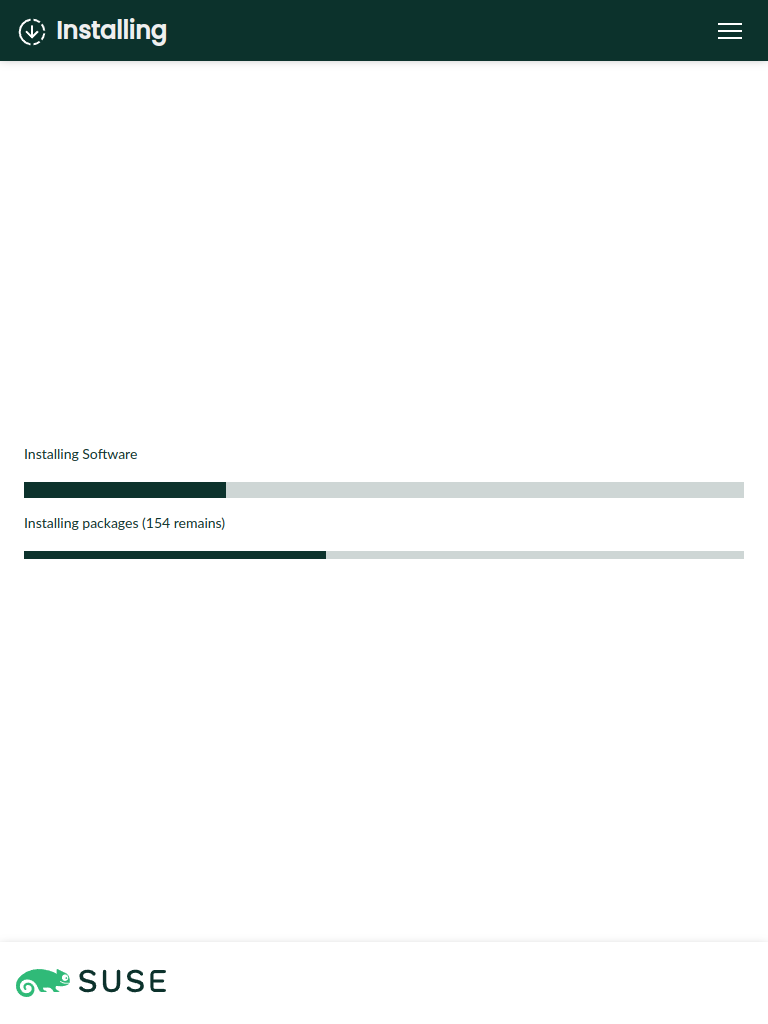 |
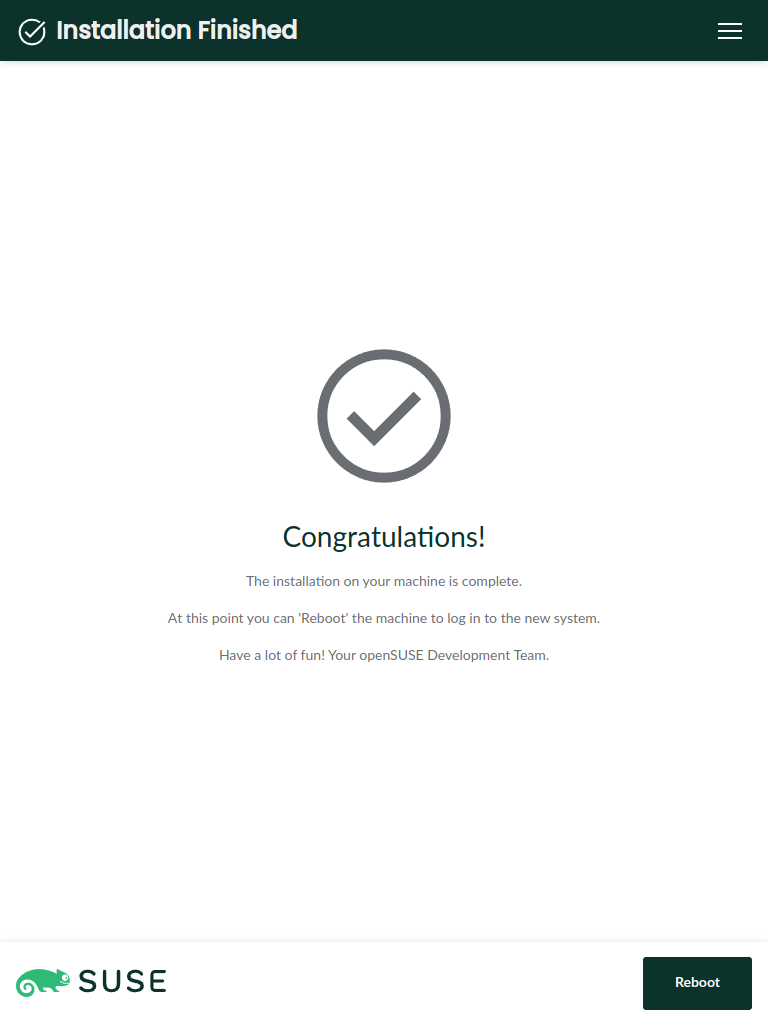 |
Note for developers: For updating the screenshots see the integration test documentation.
This new project follows two main motivations: to overcome some of the limitations of YaST and to serve as installer for new projects like SUSE ALP (Adaptable Linux Platform).
YaST is a mature installer and control center for SUSE and openSUSE operating systems. With more than 20 years behind it, YaST is a competent and flexible installer able to cover uncountable use cases. But time goes by, and the good old YaST is starting to show its age in some aspects:
- The architecture of YaST is complex and its code-base has too much technical debt.
- Designing and building rich and modern user interfaces is a real challenge.
- Sharing logic with other tools like Salt or Ansible is very difficult.
- Some in-house solutions like libyui makes more difficult to contribute to the project.
SUSE is working on its next generation operating system called ALP (Adaptable Linux Platform). ALP is designed to be a lean core system, moving most of the software and workloads to containers and virtual machines. For some cases, for example cloud and virtual machines, ALP based systems will be deployed with auto-installable images. But still there are quite some situations in which ALP must be installed in a more traditional way. A clear example consists on installing over bare metal where some system analysis is required beforehand. Agama is also intended to cover such use cases for ALP, offering a minimal but powerful installer able to support a wide range of scenarios (e.g., RAID, encryption, LVM, network storage, etc).
This project is designed as a service-client system, using a dedicated D-Bus server for process communication.
Agama consists on a set of D-Bus services, a web client and a command-line interface. The services use YaST-based libraries under the hood, reusing a lot logic already provided by YaST. Currently Agama comes with six separate services, although the list can increase in the future:
- Agama service: it is the main service which manages and controls the installation process.
- Software service: configures the product and software to install.
- Users service: manages first user creation and configuration for root.
- Localization service: allows to configure the language and keyboard settings.
- Storage service: analyzes and prepares the storage devices in order to perform the installation.
- Questions service: helper service used for requesting information from clients.
Agama offers a web interface and its UI process uses the Cockpit's infrastructure to communicate with the D-Bus services.
There are two ways of running this project: a) by using a Agama live ISO image or b) by cloning and configuring the project.
The easiest way to give Agama a try is to grab a live ISO image and boot it in a virtual machine. This is also the recommended way if you only want to play and see it in action. If you want to have a closer look, then clone and configure the project as explained in the next section.
There are two flavors of live ISO images:
- openSUSE: it can be used to install different openSUSE distributions, like Tumbleweed or Leap.
- ALP: it allows to install the development version of SUSE ALP Dolomite.
You can download them from the openSUSE Build Service.
You can run Agama from its sources by cloning and configuring the project:
$ git clone https://github.com/openSUSE/agama
$ cd agama
$ ./setup.shThen point your browser to http://localhost:9090/cockpit/@localhost/agama/index.html and that's all.
The setup.sh script installs the required dependencies
to build and run the project and it also configures the Agama services
and Cockpit. It uses sudo to install packages and files to system locations.
The script is well commented so we refer you to it instead of repeating its
steps here.
Regarding the web user interface, alternatively you can run a development server which works as a proxy for the cockpit server. See more details in the documentation.
To start or stop Agama D-Bus services at any time, use the agama systemd service:
sudo systemctl start agamaIf something goes wrong, you can use journalctl to get Agama logs:
sudo journalctl -u agamaAnother alternative is to run source checkout inside container so system is not affected by doing testing run beside real actions really done by installer. See more details in the documentation.
If you want to contribute to Agama, then please open a pull request or report an issue. You can also get involved in our discussions.
For more details, please read the contributing guidelines.
- Packaging
- Working with the web UI
- D-Bus service API (generated)
- Web frontend documentation (generated)











